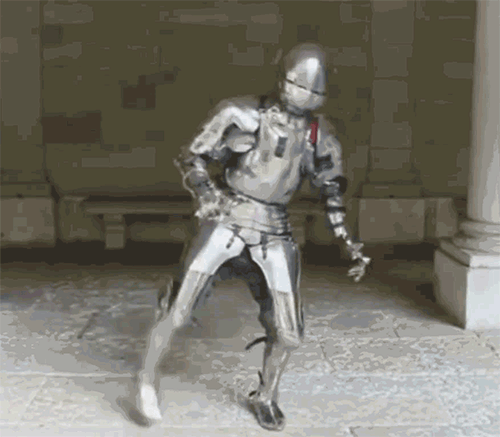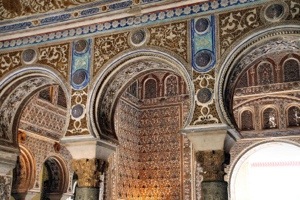I’ve been fascinated with Medieval European history for as long as I can remember. I have no idea where it started, and it doesn’t look likely to end any time soon. Something about the complexity of it all, the sheer scope of changes that occurred, and the visceral horror of its warfare fascinates me. However, no matter how much I read or study them, I still don’t feel like I really understand the Middle Ages.
While at first glance Feudal society seems pretty rigid and straight-forward, there were tons of variation from place to place. What was legal in England might be banned in Bavaria, and what might be normal in Italy could be considered heresy or witchcraft in northern Spain.

Source Seriously, watch this video, it’s awesome.
Loyalty was completely different as well. With the advent of Nationalism in the late 19th Century, people became loyal to ideas and nations, but these concepts were completely foreign to the average Feudal citizen. People were loyal to their liege lords, to their kings, and to their God. Loyalties often became conflicted during war, and even war itself was completely different than we often perceive.
While issues of race came up whenever fighting a foe of different skin tone, Medieval Europe was also a lot more diverse than it’s generally portrayed in media and history books themselves. Especially considering the Moorish occupation of Spain and Sicily, the Asiatic Hungarian invasion, and the incredible trade network used by merchants both foreign and domestic.

Here is the interior of a Cathedral in Spain, known as Mezquita. It was originally built as a Mosque by a North African Caliph, but later repurposed as a Roman Catholic Cathedral. Note the Horseshoe arches, typical of Moorish Architecture. Attribution: Flickr
To put it simply, Medieval Europe was complicated, and a lot of assumptions people have about it are either incomplete or flat-out wrong (for example, the idea that most people thought the world was flat). Politics, local customs, chivalry, religion, warfare, tournaments, and Feudal privilege are all concepts so far removed from most modern experience that they have become obscured in the fog of time, the convenience of propaganda, and the narratives crafted by the historians themselves.
So I’ve decided, in an effort to better flesh out my research and help me finish “A Test of Honor,” I’ll be sharing my research and findings right here on the blog. Here’s what you can look forward to over the next few months:
Start at the Beginning – Rome’s Would-Be Successors
Economics – The Feudal System
Race – Not as White as You Think
Politics – Personal, Religious, Practical
Warfare – Not as Violent as You Think
Tourney and Battlefield – Chivalry and Butchery
MVW’s -Most Valuable Weapons
Not All Kingdoms – Republics and Free Cities
Government by Consent – Voting, Human Rights, and Enlightenment

Bodiam Castle in East Sussex, UK. Attribution: Wikipedia
Is there something else about Medieval Europe that you’d like to see me cover in this series? Leave your question in the comments and I’ll make sure to include it in a future post!

